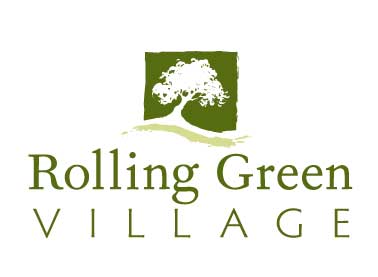Millions of seniors are freely giving their time and skills to good causes all over the country. Organizations and programs that depend on the help of others welcome all volunteers, including seniors, because of their acquired skills and life experiences. In your retirement, you also may be interested in getting involved in volunteering.
While volunteering is a noble pursuit where you will help others, did you know that volunteering doesn’t just benefit the people or organizations being served? It also has significant benefits for the volunteers – especially senior volunteers. Volunteering is related to reduced risk of hypertension, heart disease, and cognitive impairment.
There are so many ways for seniors to volunteer. If you’d like to lend a hand to help out others, check out the best volunteering opportunities for seniors so you can find the role where you’ll be sure to thrive.
Benefits of Volunteering in Retirement
A growing body of research is finding a positive association between volunteering and improved mental and physical health, particularly for aging adults. Senior volunteers report health benefits like lower rates of depression, fewer physical limitations, lower mortality rates, and higher levels of well-being. Here’s why volunteering has so many health benefits:
1. Volunteering reduces the risk of depression and lowers stress.
According to Mayo Clinic Health System, those aged 60 and up have lower rates of depression if they volunteer, and even more so for adults who are aged 65 and older. A key reason is that volunteering increases your social interactions and helps you build a healthy support network.
Social circles tend to shrink as you age, and when that happens, isolation becomes a serious risk to your mental and physical well-being. Interacting with others and knowing you have people you can count on goes a long way toward a happier life.
88% of AmeriCorps Seniors volunteers who felt a lack of companionship reported fewer feelings of isolation after becoming a volunteer.
2. Volunteering keeps you physically active.
Even moderate physical exercise can help you stay healthy and more independent. Keeping yourself moving through volunteer work is an easy way to do some good for your body now and help prevent loss of function as you get older.
One study of older adults found that participants who volunteered for 100 or more hours per year showed a 63% decrease in decline of physical function in contrast with those who didn’t volunteer.
3. Volunteering helps you stay mentally sharp.
Volunteering provides seniors with social, physical, and cognitive activity. A study showed that seniors who volunteer on a regular basis have fewer cognitive problems and dementia rates than seniors who do not volunteer.
Having constructive ways to spend your time and learning new skills as you volunteer both promote cognitive function that has lasting benefits.
4. Volunteering increases a sense of purpose.
Retirement has a lot of perks, but it can bring a sense of loss when you no longer have work responsibilities. The Corporation for National and Community Service (CNCS) highlights several studies linking volunteerism with a stronger sense of purpose, which in turn positively impacts physical and mental health. One study found that participating in community service as a senior volunteer was more strongly associated with life satisfaction than working for pay.
Senior Volunteer Opportunities
You can volunteer in all kinds of roles. Seniors volunteer with groups that support others through:
- Delivering food
- Mentoring children
- Supporting schools
- Helping community gardens
- Offering companionship to seniors
- Supporting local charities
Take a look at some of the following ways to get involved with volunteering:
AARP
The American Association of Retired Persons (AARP) has a vast network full of possible volunteering experiences you could join. You can search for opportunities by causes that you’d like to support or through programs you’d like to help.
AARP also offers ways to volunteer virtually – which can make the commitment to volunteering much easier for seniors.
AmeriCorps Seniors
This is a fantastic resource for anyone interested in getting involved with volunteering. AmeriCorps Seniors is a volunteer group specifically for people aged 55 years and older.
AmeriCorps Seniors can connect you with all kinds of volunteering opportunities, like:
- Foster grandparent program
- Helping children learn to read
- Delivering groceries to older adults
AmeriCorps Seniors partners with many organizations to help you find the right role.
Habitat for Humanity
Habitat for Humanity has a South Carolina branch focused on building and repairing housing, helping families, and supporting communities. They also help prepare for natural disasters so the community can recover. Find out more about their volunteer opportunities here.
Local Food Banks
Helping out your local community food bank can support your neighbors and make sure no one goes hungry. South Carolina’s largest food bank is Harvest Hope Food Bank. You can volunteer to work with sorting, packing, or transporting food.
VolunteerMatch
This resource can help you narrow your volunteer search based on your interests and what is available in your area.
You can choose from categories like helping Seniors, Children & Youth, Advocacy & Human Rights, Arts & Culture, and more. After selecting the subject, you’ll see all the possible ways you can volunteer and the organization you’d be helping.
How To Get Started Volunteering as an Older Adult
When you’re starting to volunteer, you may not know which direction to look. It can help to think about your professional experience, unique skills, creative abilities or interesting hobbies – what would you like to share?
Or perhaps there’s something you’d like to learn, such as a new skill or even a new language, that you can then use to help others.
You also want to consider how often you’d like to volunteer. You can spend a lot of time volunteering or doing something once a week or a few times a month – it’s entirely up to you.
Once you have a better sense of what you’d like to do and how often you’d like to volunteer, it’s time to start looking. One helpful tip is to start locally. Check volunteer listings for your local libraries, museums, senior living communities, houses of worship, food banks, and community gardens.
Remember, volunteering doesn’t have to be a monumental task. Volunteering can be as simple as reading to kids, driving older seniors, or spending time with someone who can’t leave their residence.
Get Involved at Rolling Green Village
Residents at Rolling Green Village find all kinds of ways to stay active through volunteering – and you can, too. Life at Rolling Green Village is full of purpose and fulfillment. Come for a visit and learn more about our community and how we give back.



